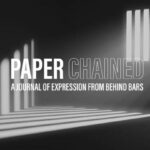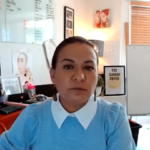The Dilution of the Doctrine of Double Jeopardy and the Gordon Wood Case

In June 1995, the body of Sydney model Caroline Byrne was found at The Gap, Watson’s Bay.
It took thirteen years for Gordon Wood, her then boyfriend, to stand trial for her murder.
He was adamant that she committed suicide, but a jury of twelve found him guilty in November 2008.
In a further twist to the long-running case, the Court of Criminal Appeal acquitted him in February 2012, essentially due to insufficient evidence.
The double jeopardy rule would suggest that he could never again be prosecuted for Ms Byrne’s murder.
But can he?
Double jeopardy
Double jeopardy refers to a second prosecution for the same offence after acquittal or conviction, or multiple punishments for the one offence.
It is one of the oldest legal concepts in Western civilisation.
It was codified by the Romans, and as a principle, survived the Dark Ages through Canon Law and the teachings of early Christian writers.
It came about due to the need to safeguard a person from a government’s superior resources.
It is intended to preserve the integrity and finality of criminal proceedings, and to protect a potentially innocent person from the social, emotional and financial burden of repeated prosecutions.
Current law in NSW
An application for an initial retrial can be made under either Section 100 or Section 101 of the Crimes (Appeal and Review) Act 2001 (‘the Act’).
Under Section 100, a person may be retried for a life sentence offence if:
“(1) … (a) there is fresh and compelling evidence against the acquitted person in relation to the offence, and
(b) in all the circumstances it is in the interests of justice for the order to be made.”
Under Section 101, a person may be retried for an offence that carries a maximum penalty of 15 years or more imprisonment if:
“(1) … (a) the acquittal is a tainted acquittal, and
(b) in all the circumstances it is in the interests of justice for the order to be made.”
Due to public demand, the laws covering double jeopardy were amended in NSW in 2009.
The Bill was named the Crimes (Appeal and Review) Amendment (Double Jeopardy) Bill 2009 (NSW) (‘the Bill’).
The Bill deals with applications for further retrials – that is, retrials after the initial retrial.
The Bill amended Section 105 of the Act and inserted:
“(1A) An application may be made for further retrial of a person acquitted in a retrial under this Part but only if it is made on the basis that the acquittal at the retrial was tainted.”
Section 103 of the Act sets out that:
“(2) An acquittal is “tainted” if:
(a) the accused person or another person has been convicted (in this State or elsewhere) of an administration of justice offence in connection with the proceedings in which the accused person was acquitted, and
(b) it is more likely than not that, but for the commission of the administration of justice offence, the accused person would have been convicted.”
Further:
“(3) An acquittal is not a tainted acquittal if the conviction for the administration of justice offence is subject to appeal as of right.”
An ‘administration of justice’ offence is defined under Section 98 of the Act as:
“(a) bribery of, or interference with, a juror, witness or judicial officer,
(b) perversion of (or conspiracy to pervert) the course of justice,
(c) perjury.”
Therefore a 2-step process is required before a further retrial can be granted.
Firstly, the administration of justice offence must be proved.
Secondly, it must be proved – on the balance of probabilities – that if the administration of justice offence had not occurred, then the person would have been convicted (of the offence which is the subject of the application for a further retrial).
Otherwise for the prosecution, as in the words of Henry Ford, “failure is simply the opportunity to begin again, this time more intelligently”.
Woods v Nationwide News
While that seems like the end of that, Mr Wood is in fact about to face court again – this time in a civil case.
Mr Wood brought defamation proceedings against Nationwide News last year and the media outlet is defending the case on the basis that the allegation of murder is true.
Next year, a court will have to decide whether Gordon Wood is “responsible” for Ms Byrne’s death.
Before the court can make a decision either way, it must first determine whether Mr Wood was in fact the killer.
The court will hear basically the same case, but with a crucial difference:
the criminal case was tried with a conviction requiring a finding that Mr Wood committed the murder “beyond a reasonable doubt”.
The civil case will be tried with the basic legal standard being that “on a balance of probability” Mr Wood committed the murder.
The former legal standard is far more onerous than the latter “balance of probability”, which requires a much lower standard of proof.
But isn’t this double jeopardy?
In the eyes of the law, no.
This is because the court distinguishes between civil and criminal proceedings in applying the double jeopardy principle.
In other words, a person who has been acquitted or found guilty in a criminal case can still be subject to proceedings in a civil trial, for the same offence.
The reason for this is that the court has recognised that civil and criminal remedies serve different purposes.
But that doesn’t mean there is no possibility of new and compelling evidence arising from the civil trial, which could warrant a retrial in the criminal court.
OJ Simpson
The Wood case is similar to the infamous OJ Simpson matter in the US.
It is well known that Simpson was acquitted of murdering his wife Nicole Brown Simpson and her friend Ron Goldman in his criminal proceedings.
However, it is less well known that OJ was subject to three civil suits filed against him by the victims’ families.
He was found “responsible” for the deaths, and ordered to pay $25 million in damages to the families of his wife and Ron Goldman.
After the court’s ruling in their favour, Ron Goldman’s father told the press that they were ecstatic with their win, and insisted that the money was not the motivation in bringing the civil action, but rather, that they were looking for justice and for closure.
Although Mr Simpson was not criminally liable, the families used the civil proceedings to get around the double jeopardy rule in America to satisfy their need for justice.
If the court finds for Nationwide News, and decides that Mr Wood is in fact “responsible” for the murder of Ms Byrne, he will have to pay the defendant Nationwide News’ costs, but he will still be protected by the double jeopardy maxim under criminal law – unless of course some new and compelling evidence comes to light out of the civil proceedings.






